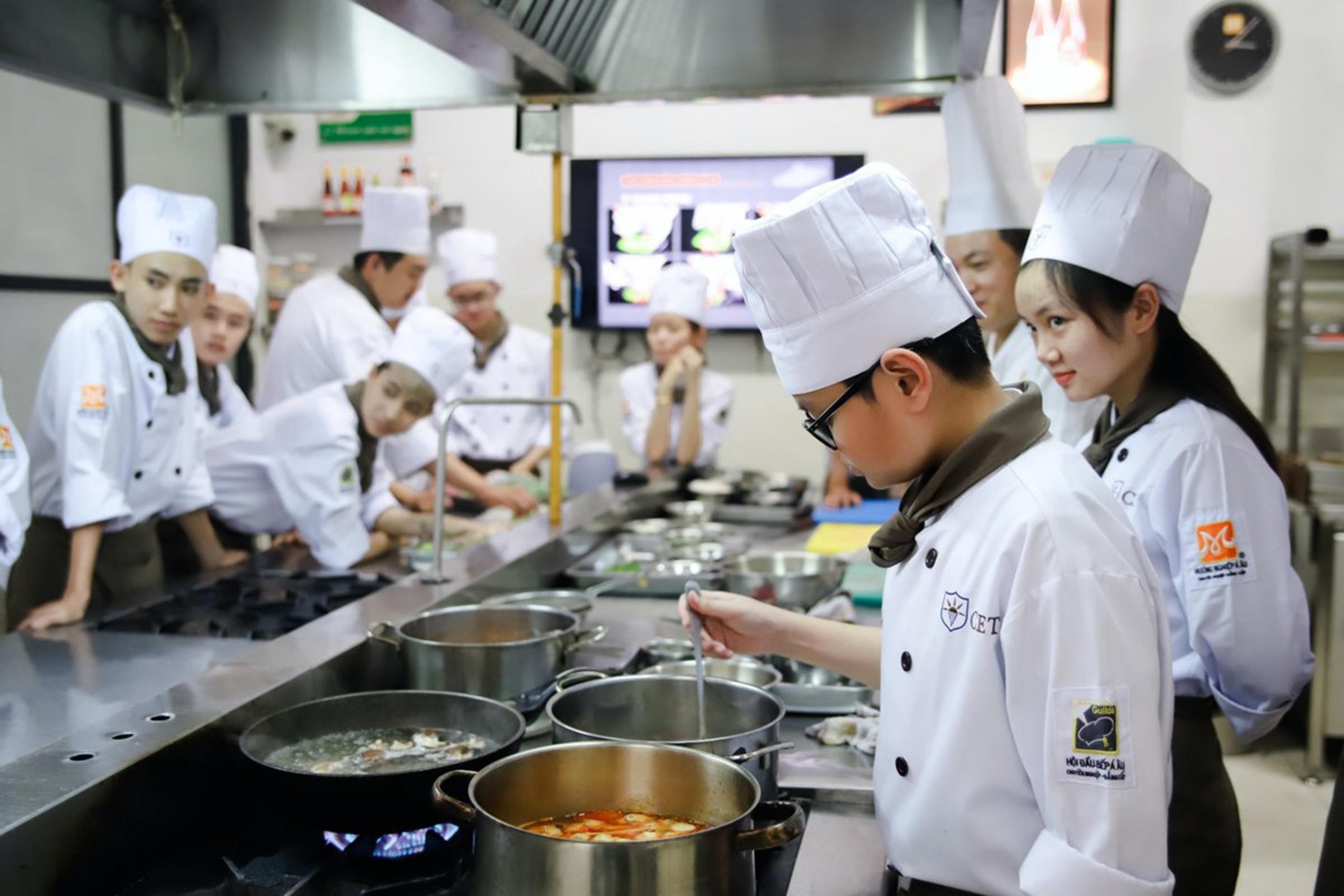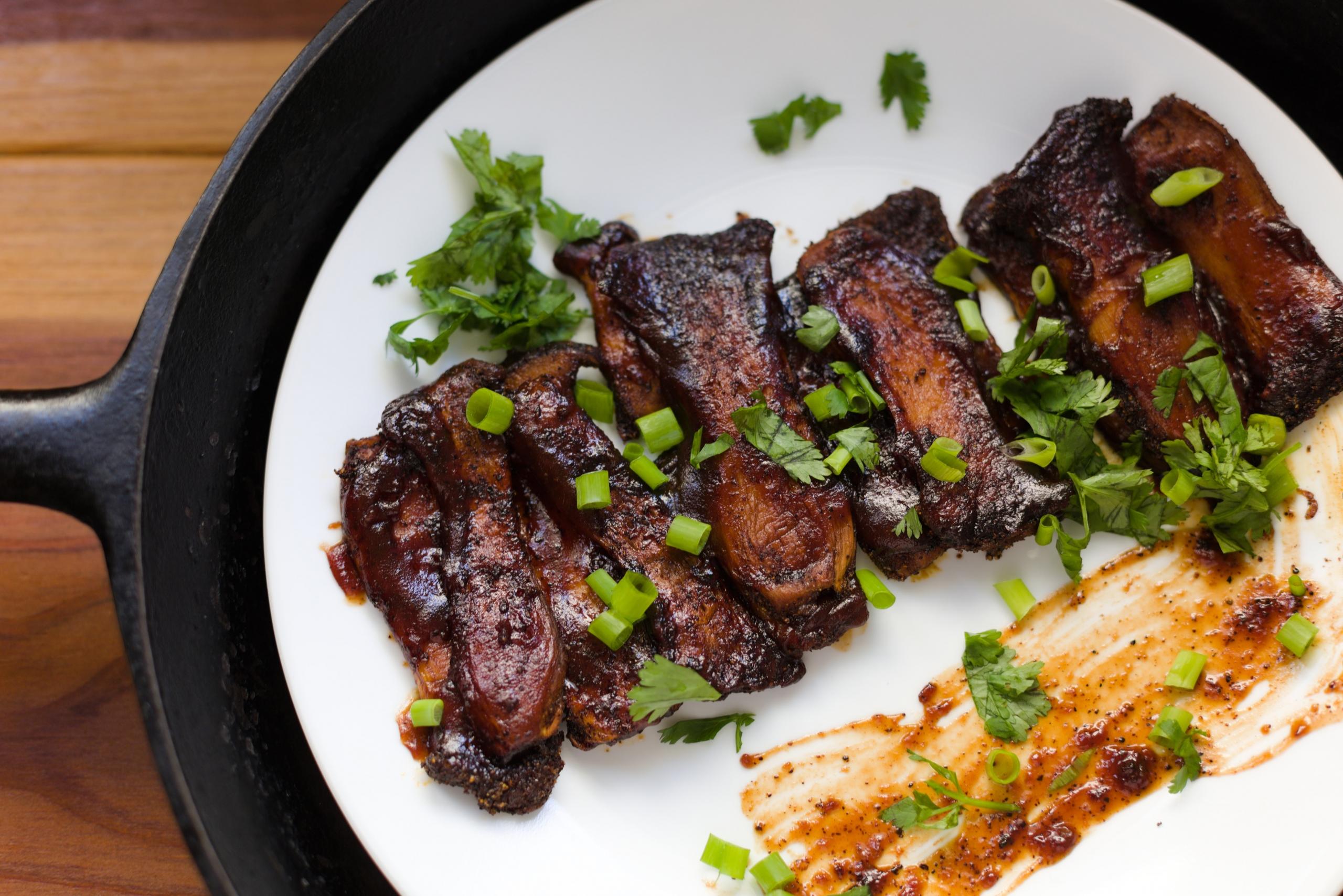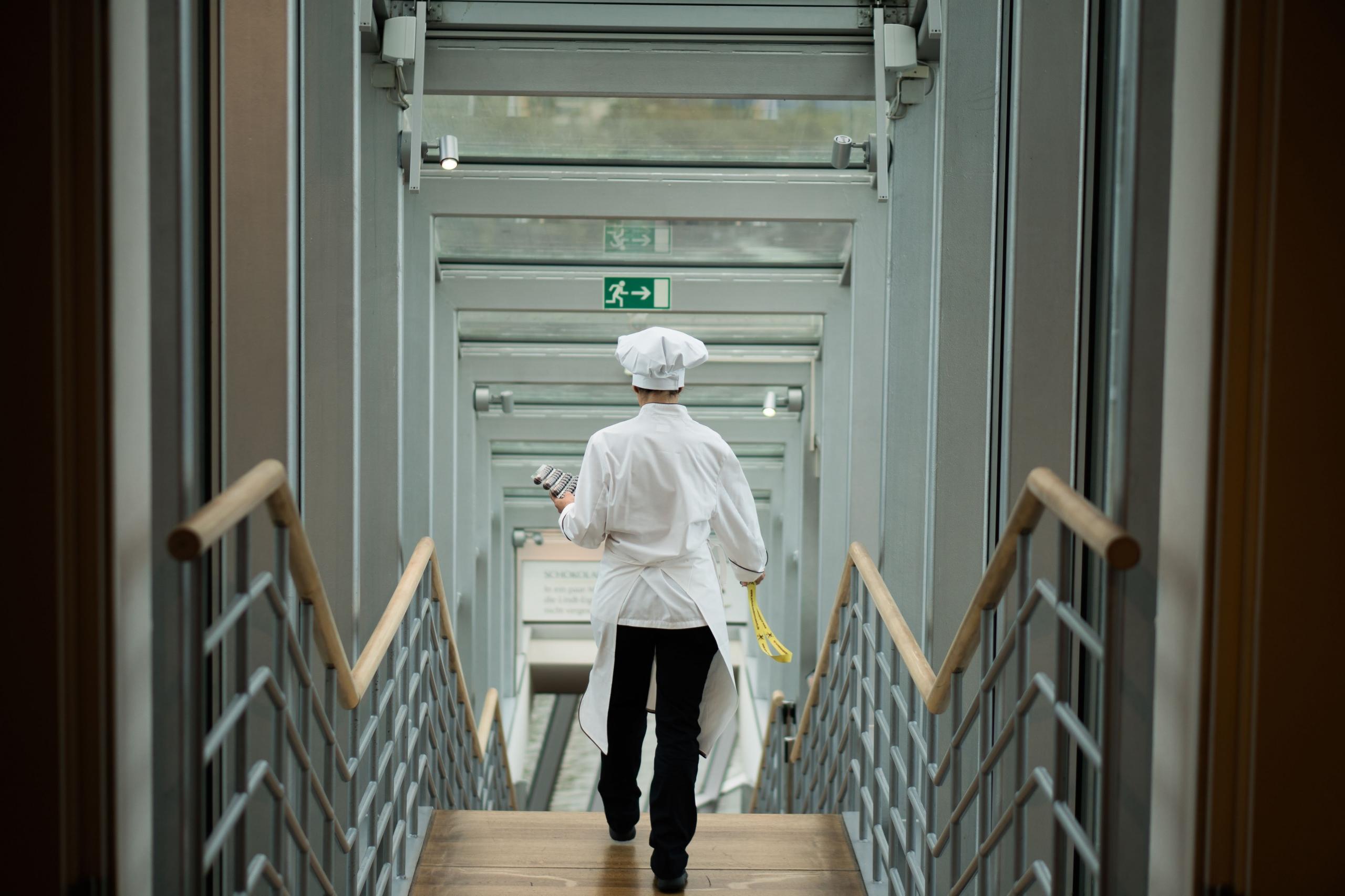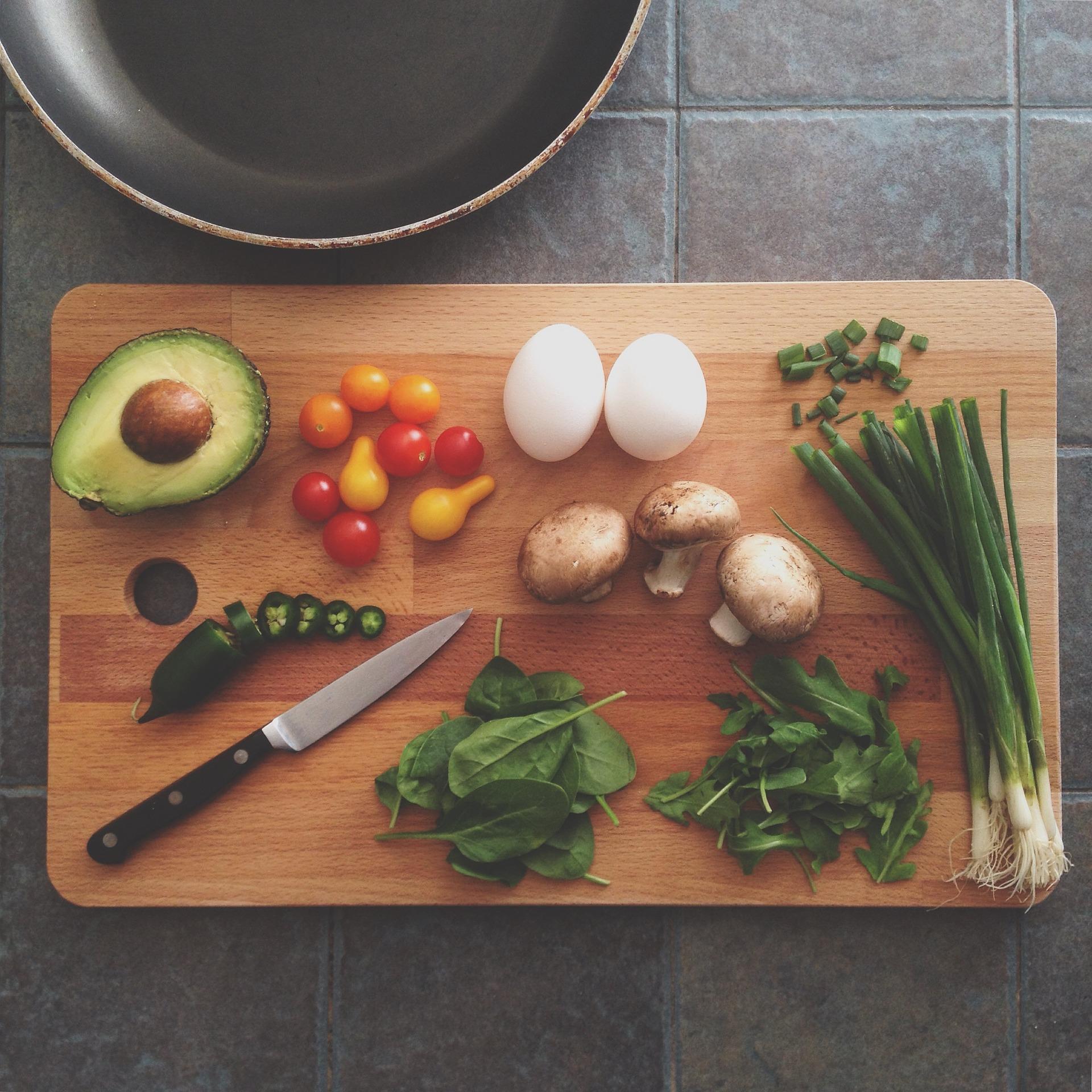"Being a chef is like going back in time...you are tasting and preparing food you originally ate as a child."
-Richard Mead
The process to train to be a chef is an immersive experience that brings aspiring culinary experts back to their roots and reminds them of the food items and meals they ate that inspired them to take up a career in the food industry. Many chefs claim that the simple dishes their grandmother created are still the best meals they've ever eaten.
The childhood dishes that were your favourite, whether mac and cheese, Sunday roast, or sweets, will undoubtedly shape a person's culinary style when becoming a chef.
Without further delay, in today's article, we shall consider a comprehensive guide that discusses how to be a chef, what a chef does, what qualifications you need to be a chef and additional details such as head chef qualifications in the United Kingdom.
Also, we'll glance at how many years it can take to become a chef, the established hierarchies among chefs in the restaurant environment, and the pressing topic of food safety that staff must adhere to at their place of employment.

What Qualifications Do You Need to Become a Chef?

Becoming a chef is a worthy endeavour and a brilliantly creative career that you will never regret choosing. Slightly different from a cook, who works in the kitchen and follows the recipes given to them, a chef creates and is consistently passionate about serving good food.
But, are there specific qualifications that a chef must possess before starting to work in a restaurant's kitchen? Not necessarily. While it is necessary to have a high school leaving diploma and excel at maths and English subjects to possess above-average literacy and numeracy abilities, being accredited by a culinary school is not mandatory.
However, it's worth mentioning that having a degree or training qualification from an institute or cooking school is exceptionally suggested since it shows that specific characteristics have been honed that make chefs professional whether they do catering or work at a Michelin star restaurant.
Some aspiring chefs have taken their cooking abilities to the next level and have attended classes at the following culinary learning institutes in the UK:
- Le Cordon Bleu London,
- Tante Marie,
- Westminster Kingsway College in London,
- The Academy of Culinary Arts,
- The Bertinet Kitchen,
- Chef Academy London,
- Ashburton Cookery School & Chefs Academy.
The previously mentioned schools boast courses that last between a few weeks to a few years and are brilliant for chefs of all learning levels to help them reach the next step in their careers.
For those who don't have the money or the desire to attend a cooking course, you can hone the following skills while you learn to be a chef:
- Willingness to learn,
- Problem-solving,
- A genuine passion for culinary arts,
- Ability to multi-task,
- Teamwork,
- Leadership,
- Creativity.
By possessing the previously mentioned abilities, aspiring chefs prepare themselves for future jobs in the kitchen before they even start.
Also, since qualifications are not always necessary, many chefs and cooks are self-taught, and they have taken the time to practice new recipes in their own time. However, for self-taught learning, it is recommended to receive the assistance of a private cooking tutor who is available for lessons either in-person or online; their expertise adds necessary guidance for those wanting a chef career.
But, how many years does it take on average for a person to become a chef in the UK? Take a look at the following subheading to discover the answer!
How Many Years does it Take to Become a Chef?

Before starting to learn a new career pathway, people often are curious about the length of time it will take to study and become proficient in a particular employment position.
So, how many years should a person dedicate to becoming a chef at work? Since there are so many unique circumstances and contributing factors that dictate how many months or years it may take to study to become a chef, it's nearly impossible to give a general answer that encompasses everyone's personal situation.
Why's that? Well, since there are different types of programmes that are open to those who want to study how to be a chef, the time frame of studying varies but, to give our readers a general idea, the following list highlights three education pathways available to aspiring chefs and cooks:
- Formal Training Programmes: ranging from a few months to a few years, traditional training programmes in the culinary arts are usually held at vocational training schools or universities. A Bachelor's course in some form of the culinary arts may be acquired. Training is both theoretical and hands-on.
- Apprenticeship Programmes: by shadowing the example of more experienced chefs and learning the ropes of everything there is to know about a chef working, aspiring cooks may take part in apprentice programmes. By being an apprentice, you receive a lot of hands-on training in the kitchenette and have the opportunity to learn from the most senior chef. Courses range from a few weeks to a few months. You'll have trouble finding an apprentice course that only lasts a day!
- Self-Taught Training: by learning on your own and occasionally receiving guidance from tutors and other experienced ones, some follow the self-taught method. However, the period it takes to complete depends on the skillset of the chef in question.
Although the answer to how long it takes to become a chef is not a direct one, it's safe to say that if you want to boast fancy skills and work in reputable restaurants, you should dedicate a few years to honing your culinary knowledge and making your way up the chef ranks. Nonetheless, on the other hand, if you are looking for easy jobs as a chef that isn't at a reputable eatery, you might not need any training, and a few weeks of self-taught learning is enough.
No matter how long it takes you to become a chef that is working in a UK-based restaurant, you should keep the following things in mind:
- Don't worry about making little money in the beginning,
- Master the fundamentals of cooking, so you don't fall behind in the kitchen,
- Continually try your best to have a positive attitude and work well with others.
Honestly, working as a chef is a fantastic career choice that any person can considerably enough because your make people happy with your food, it's a creative outlet, and there is never a dull moment in the kitchen!
What are the Chef Hierarchies and Salaries?

As is the case with most employment sectors, in the culinary industry, there is a hierarchy in the kitchen that dictates the roles of each culinary chef that may be working and the amount of money they receive per year.
The hierarchy in the kitchen to rank and organise chefs was first established in the 19th century by culinary expert Georges-Auguste Escoffier. The hierarchy of chefs is known as "The Brigade System" and was implemented and is still used today to maximise efficiency and ensure that the kitchen works smoothly like a well-oiled machine.
So, if you were wondering, which is higher sous chef or commis chef, the following list demonstrates the brigade de cuisine. It is written in terms of the highest to lowest rank that can be experienced in the 21st-century kitchen across Europe and other nations around the world:
- Executive Chef: the big boss of the kitchen, the Executive Chef is the one in charge and oversees all occurring tasks. The most senior chef oversees the entire staff and takes care of business in the cooking or baking environment at a bakery or restaurant. Also, the Head Chef is responsible for creating new recipes and tasting menus.
- Sous Chef or Deputy Chef: the second in command is known as the Sous Chef, and they are often in charge of the kitchen when the Executive Chef is gone. In many cases, the Sous Chef does most of the cooking and responds directly to the Head Chef.
- Station Chef: also known as the Chef de Partie in French, the Station Chef is the head of their station, and they specialise in a specific aspect of cooking such as meat, fish, vegetables, or sauces to name a few. The Station Chef will follow the directions of other the Executive or Sous Chef.
- Junior Cook: often seen as the chef in the kitchen with the least amount of experience, the Junior Cook, or commis, works with a Station Chef to slowly develop their skills and move up in the rankings in their job.
While we could go on and on about more of the chef ranks in the standard kitchen, it's worth mentioning that most restaurants have the previously mentioned hierarchy positions. Sometimes the roles are combined or excluded if the kitchen is of a small size.
Regardless of the chef ranks, all types of chefs need to do their best to put on chef qualities and work together as a team.
But, how much do chefs make? Based on hierarchy and experience, the Executive Chef is the one who makes the most money per year. On average, in the UK, Head Chefs can expect to welcome a salary of between £25,000 to £60,000+. On the other hand, Deputy chefs have a lot of responsibility, yet they earn significantly less and have a yearly salary of £20,000 to £30,000. If you're starting in the kitchen as an intern or Junior Chef, a salary of between £12,000 to £16,000 is expected.
To make a little extra cash on the side as a cook or chef, some have considered selling prepared home meals to working families in their community, launching a YouTube cooking channel, or teaching cooking courses on weekends.
Why is Food Safety Important?
If you want to become a chef, there is something that you must know: food safety is paramount! To ensure the excellent health of patrons who come to visit the restaurant and to guarantee a clean working environment, there are specific rules that chefs must adhere to that are usually established by the government.
In many cases, food safety training is provided to all members in the kitchen to prevent the spread of disease, make sure that no one becomes allergic to a specific item they shouldn't have had contact with, and ensure that food items are always fresh and never past date.
Also, food safety requires those working in the restaurant to frequently wash their hands, avoid cross-contamination of raw and cooked items, and use protective equipment such as gloves, masks, or hairnets. If all kitchen staff is taught well, it's much easier to ensure cleanliness, have a unified team and run a profitable business with no risk of getting shut down.
Since it's such an essential aspect of a cook's life, there are courses and culinary classes that teach chefs and other employees about the elements of food safety, whether in-person or online, via videoconferencing platforms.
Please look at our article about food safety to become familiar with the tips and tricks that experienced ones suggest.
In conclusion, we sincerely hope that all the information in today's article has inspired you to consider an exciting career in the culinary arts. Happy cooking!
Summarise with AI:
























